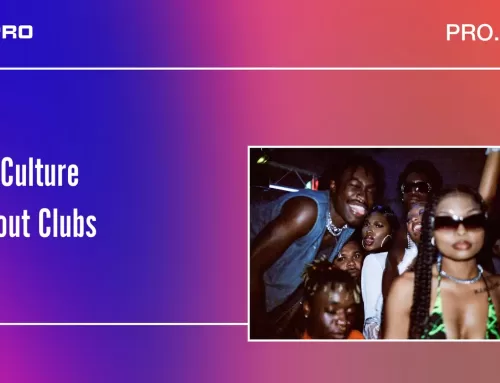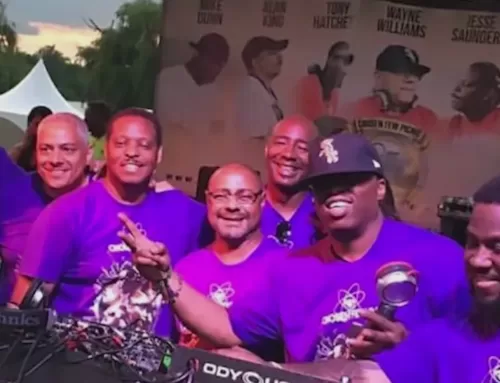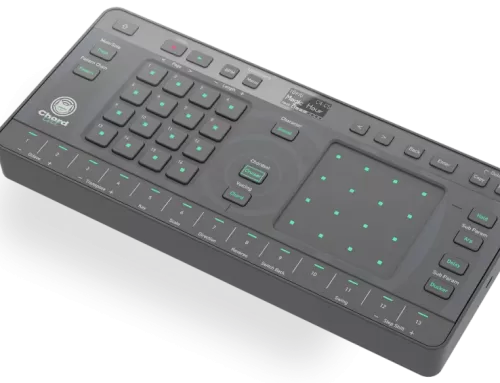Jimpster (Jamie Odell) has been producing music since 1992. He currently co-runs the Freerange and Delusions of Grandeur labels and is a world-renowned producer and DJ. We spoke to Odell about the changes he’s seen in house music over the years, and attempt to uncover the secrets of his sound.
Photo by Tom Oldham.
The deep house scene owes more to sandwiches than perhaps it realizes. If Jimpster’s kindly mother-in-law hadn’t sold her sandwich bar business in the mid-’90s, then used some of the profits to provide the start-up capital for the labels he co-runs with Tom Roberts, then he might never have set up Freerange Records.
“Tom and I started the label in 1996 just after I finished my course at music college,” he says. “We’d always chatted about starting our own label but everything fell into place at that time as I’d been making quite a lot of tracks so we knew we had at least three EPs ready to press to get the ball rolling.
“We took inspiration from labels like Mowax, Ninjatune and Compost who were releasing a lot of jazz-influenced stuff and that idea of fusing different genres and styles and mixing live musicianship with sampled beats was what felt natural to us at the time.”
Since those early days, Freerange and later Delusions of Grandeur have become labels that are associated with a certain sophisticated and musical output that often transcends genre. In that time, Odell has become a well-respected and influential producer, broadening the deep house palette, producing and releasing house music with depth and longevity. His 2017 long player Silent Stars hangs together beautifully, layers of chords and evocative atmospheres sitting atop precision-engineered beats, ranging from moody electronica to deep, tech, jazz and afro-tinged house.
Freerange and Delusions are both a guarantee of quality, a stamp of sophistication in a world of sound-a-like sample-pack grooves. For many house fans, their releases stand out because of their musicality and high quality. We used to call labels like this “buy-on-sight.”
Black Flags
However, Jimpster’s “overnight success” took years of hard slog. Prior to Freerange, Odell’s first releases in 1992 were hardcore rave-esque cut’n’paste tunes under the name “Flag,” their breakbeats and rush-inducing samples reflecting the intensity of the UK rave scene as it rapidly sped away from its Detroit and Chicago roots. These form a sharp contrast with his restrained, pristine, high-quality compositions of today and are a fascinating insight into the very beginnings of what is now a huge discography.
“Ah, you’re digging deep for the skeletons in my closet!” he says “The Flag stuff was very crude – basically just getting my head around an Akai S900 sampler. All sequenced up on an Atari ST and recorded straight to DAT through a Yamaha four-track tape machine and a single Carlsbro Keyboard amp as a monitor.
“I’d like to be able to say that it sounds so ‘analog’ and warm but actually it just sounds a bit weak and amateur. We all have to start somewhere though and those early releases as Flag and another one in 1994 as “Loxodrome” (which is a bit more decent) taught me a lot and made me realize this was something that I loved doing and might actually be good enough to get released.”
The Dreaded DJ Biography…
Cut’n’paste breaks and bleeps then are the beginnings of this particular DJ/producer’s biography. We are all now overly familiar with the tropes and cliches of DJ/producer bios: their love affair with music started early, they took piano lessons, had a parent who was a musician… However, all these things did actually apply to Odell, whose father was in UK Jazzfunk group Shakatak.
“I’m a product of my environment and thankfully it was a very musical one,” he says. “There was a piano in the house to tinkle on, a record deck and brilliant collection of jazz, fusion, soul and funk to play on it. I got a little Yamaha mini keyboard bought for my eight birthday which had an LCD screen on it and these built-in tutorial games to teach you the notes of the scale and help memorize melodies, a bit like Simon Says.
THAT’S THE BEAUTY OF HARDWARE, JUST BEING ABLE TO SIT AND FIDDLE ABOUT, HEAR THE RESULTS INSTANTLY AND NOT REALLY BE ABLE TO DO ANY DAMAGE.
“A few years later I’d go into the recording studio with my Dad when he’d be recording with Shakatak. There was a lot of time to kill so I’d grab a bit of equipment like a drum machine or synth and take into a side room and spend the whole day messing about on it and learning what could be done on it.
“That’s the beauty of hardware, just being able to sit and fiddle about, hear the results instantly and not really be able to do any damage, as opposed to everything being inside the computer. It’s overwhelming what you can do and having so many options and possibilities it can make things intimidating and confusing for someone just starting out.”
Odell is not the first to observe that the ever-growing functionality of music software can sometimes hinder rather than help the creative process. Does the dreaded writer’s block ever affect him?
“Yeah, I get writer’s block all the time. I love that expression, it makes it sound so much more important than ‘got no ideas!’
“But if I go in the studio and find myself struggling I’ll focus on a sampling session instead. I go through piles of old records and make a nice collection of new samples to start dipping into on my next session and at least then I’ve not wasted the day. I used to be reluctant to delete projects that I hit a brick wall with, in the hope that I can come back to them later and everything will fall into place. These days I’m a lot happier to accept when something just isn’t happening and bin it.”
Techno on Quaaludes
After all these years producing and remixing, there is definitely a distinctive Jimpster sound. What is it that defines that sound?
“Repetitive beats and not much in the way of vocals,” he offers. “Loopy samples, big pads, jazzy chords, warm and easy to listen to but hopefully not too muzak. Deep and engaging enough to stand up after repeated listens, one part soul to two parts ambient, techno on quaaludes.”
Sampling is a central element of how he works. “Yeah, my music has always been based quite heavily on sampled sounds going back to the rave days of the early ’90s when I first got to use an Akai S900,” he says. “I normally find that the samples can steer the direction of a track and often form the starting blocks too. Quite often the samples will end up getting removed once I’ve built up a track around them but I do love the extra noise, clicks and other artefacts you get from sampling off vinyl.”
Jazzy chords and musicality play a large part in the character of Odell’s productions too, particularly on the Rhodes.
“It’s the definitive keyboard instrument for me,” he says. “Pretty much all my favorite LPs feature the Rhodes prominently and much like a guitar it’s one of those instruments that is so hard to recreate as a plugin so it remains a coveted classic. It’s so dynamic, with a rich and pure tone and is pretty versatile too. I’ve got a Mark One from about 1970 and it looks and sounds beautiful. I can quite happily lose an entire afternoon sitting and playing it and for some extra lushness, I run it through the NI Guitar Rig to get that classic Fender Twin overdrive and spring reverb sound favored by Herbie Hancock and Chick Corea.”
How Does It All Sound So Good?
The mystery and charm of much of Jimpster’s output is just how well put together it is and how good it sounds. Another producer could gather similar elements and attempt the same trick but fail to achieve the same, pure-house results. Samples, Rhodes, some beats – it’s such a simple formula, yet so difficult to do well, to make the individual elements into something greater than their sum.
I push him for details on some other secret factor, a clue to his audio alchemy but my search for some enigmatic, mystical extra element is fruitless: the ever practical Odell simply states a couple of well-known studio basics.
“I’m always striving after a bigger, wider, punchier sound that I hear on other records,” he says, “but I trust my ears and I think my room sounds pretty nice so I know what I’m hearing back from my monitors. I don’t really have any specific tips, tricks or magic plugins apart from the obvious stuff like filtering out unnecessary highs and lows that are out of the hearing range, zapping up unnecessary headroom and I try to fill the audio spectrum so every sound sits in its own bit of space… As for my own productions, I’m motivated by simply trying to make the best music I possibly can.”
 First published in 5 Magazine #159 featuring Jimpster, Lester Fitzpatrick, Pool Boy, Chip E. & more. Become a member of 5 Magazine for First & Full Access to Real House Music for only $1 per issue!
First published in 5 Magazine #159 featuring Jimpster, Lester Fitzpatrick, Pool Boy, Chip E. & more. Become a member of 5 Magazine for First & Full Access to Real House Music for only $1 per issue!
No magic formula then. Why it’s almost as though quality and success are the results of years of hard work and simply trying your best…
So Jimpster is now a world-class producer, making the kind of music that many young artists aspire to emulate. What advice would he give them if they’d like to get their music signed to Freerange?
“Make sure there’s a bit of depth and musicality in the productions,” he says. “It’s normally a chord progression or harmonically interesting sample that would catch my ear as opposed to a minimal and stripped back drum tool. I love minimal and stripped back drum tools but I’m more likely to skip over these when listening to a selection of demos. If there’s a cool chord progression or sample, that’ll tend to grab and hold my attention.
“And obviously think carefully about your three or four strongest and most suitable tracks for the label and just send those rather than a SoundCloud link to 50 unfinished, unmixed tracks! Avoid using obvious sample packs and presets, get creative with the drum programming and try to inject some life into the groove by not over-quantizing everything and tidying everything up to the point of sterility.”
YOU HEAR PEOPLE COMPLAINING ABOUT THE YOUNG GUYS LOOKING FOR A QUICK BUCK OR WHATEVER. I DON’T SUBSCRIBE TO THAT. I’M SURE 99% OF PRODUCERS AND DJS LOVE THE MUSIC FIRST AND FOREMOST.
The Digital Revolution
Since Freerange’s birth in 1996, the club scene and DJ culture has changed in ways none of us could have imagined. Aside from the continual development of new sub-genres and the constant recycling of genre revivals, the industry has of course gone through the digital revolution. How has this has affected DJing?
“Some venues still choose to put the DJ on a pedestal, high up on a stage and disconnected from the crowd which creates this focal point and ultimately centers everyone’s attention on the DJ,” he says. “I’m pretty sure most DJs would much rather be on the same level and without being brightly lit so the crowd can choose to just enjoy the music and dance with each other without this concert performance thing being a distraction.”
The Music is Always Bigger Than All of Us
Despite the revolutionary changes that we’ve seen in clubs and DJing, there are some things that remain the same, and there is still no substitute for a bunch of like-minded people getting together around a decent sound system, a strobe and a committed DJ, to dance away their weekday blues. It’s this commitment to the music above all else that has perhaps sustained Jimpster’s career for so long.
“I guess it’s the love for the music which remains the constant,” he says. “You hear people complaining about the young guys coming into it with less than genuine intentions, looking for a quick buck or whatever. But at the risk of sounding naive, I don’t subscribe to that. I’m sure 99% of producers and DJs love the music first and foremost and have the same passion and drive as us older guys when we started out. I think social media is the single biggest factor in influencing how the industry and scene is perceived these days but can’t be trusted as a reliable source of information and often highlights negative aspects which get blown out of proportion.
“So what I’m saying is that maybe it’s just the perception of the industry being unrecognizable today, rather than the reality, and the music is always bigger than all of us.”
With Freerange and Delusions of Grandeur continuing to grow their enviable catalogue, and a seemingly ceaseless flow of inventive remixes and productions coming from Odell’s studio, perhaps that belief that “the music is always bigger than all of us” is the real secret at the heart of Jimpster’s success. As he says: “Music is the only thing I’ve ever done and wanted to do.”
*
freerangerecords.co.uk
soundcloud.com/jimpster
facebook.com/jimpster.freerange
twitter.com/JamieJimpster





